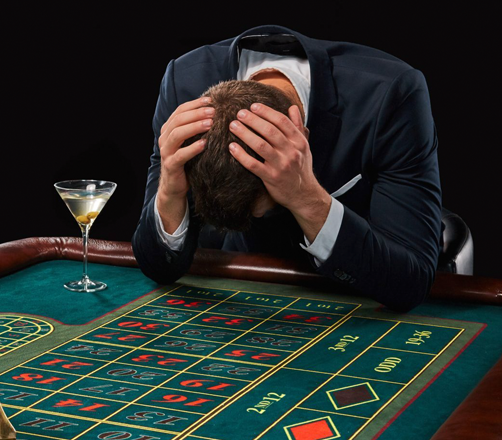Gambling addiction can wreak havoc in life and destroy relationships. Seeking professional assistance and being honest about one’s struggles are both essential in dealing with them effectively.
Admitting that gambling has become an issue can take great strength and courage. A recovery program can assist in helping overcome this issue and restore relationships.
Addiction is a brain disease
Addiction is a brain disease, impacting all areas of one’s physical, psychological and social well-being. Recognizing its symptoms early and seeking treatment as soon as possible are both essential in order to avoid serious repercussions in both your personal life and that of others. Cognitive-behavioral therapy (CBT), for instance, focuses on changing unhealthy gambling behavior while finding solutions to financial, work and relationship problems caused by addiction.
Studies show that those addicted to gambling display similar behavioral characteristics as those addicted to drugs. Both addictions involve changes in how the brain utilizes dopamine, leading to similar impulsive behaviors among their users; furthermore, this change mirrors those experienced by people suffering from impulse control disorders like trichotillomania or alopecia universalis.
It is a social activity
Gambling addictions can result from various sources. Young children may become hooked on microtransaction-driven video and mobile games, while older adults might spend too much time gambling at casinos or betting shops. Family history of addiction or personality types that make impulse control hard can all play a role.
Gambling addiction can have devastating repercussions for relationships and health, especially if it becomes an ongoing habit. Gambling often co-occurs with other behaviors like substance abuse and eating disorders; more serious instances could even result in depression and anxiety as a result of gambling addiction.
Finding assistance for gambling addiction may be challenging, but it is possible. People can seek support by increasing social connections, attending 12-step recovery programs and seeking sponsorship from former gamblers. Residential treatment or rehab programs for severe gambling addiction also exist and aim to provide safe retreats with round-the-clock support systems.
It is a form of gambling
Gambling is an activity in which participants risk something of value in exchange for the chance of receiving something of greater worth in return. Like drugs and alcohol, gambling stimulates the brain’s reward system and can become addictive; compulsive urges to gamble can have serious financial and personal repercussions for both gamblers and their loved ones, including family tensions or work problems; some even resort to theft or fraud as funding mechanisms to sustain their habit.
Gamblers addicted to gambling experience similar withdrawal symptoms as drug users; they may lose sleep or become restless, and their mood can dramatically shift. Gambling addicts may try to conceal their behavior from friends and family by lying about its extent.
Gambling addiction treatments aim at helping individuals to cease gambling. Cognitive Behavioral Therapy (CBT), for instance, can help alter unhealthy gambling behavior and thought patterns while also providing an avenue to address underlying causes such as depression or anxiety that may contribute to the problem gambling behavior.
It is a disorder
Gambling addiction is a progressive disease, impacting all aspects of a person’s life. It leads them to lose control over their gambling behavior, often spending money they don’t have and resulting in financial ruin and mounting debt. Individuals suffering from gambling addiction may also have a family history of substance abuse or mental health issues like depression, anxiety or ADHD which makes treatment challenging and requires ongoing support from professionals and friends.
Recognizing a gambling addiction is the first step toward beating it, followed by seeking treatment and possibly joining a support group like Gamblers Anonymous to replace maladaptive coping mechanisms with healthier ones and provide a nonjudgmental setting where individuals can discuss their experiences openly.
Cognitive-behavioral therapy can be an invaluable aid in treating gambling addiction. CBT teaches patients how to stop unhealthy gambling behaviors and thoughts patterns such as thinking that losing is a precursor for winning big soon enough.

